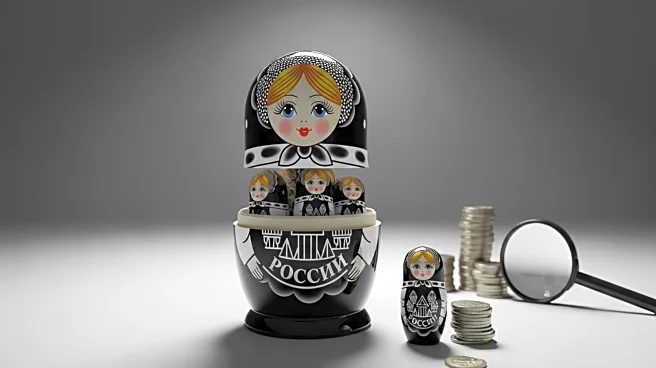What's Happening?
Sberbank CEO German Gref has warned that Russia's economy has entered a phase of 'technical stagnation' during the second quarter of the year. Speaking at the Eastern Economic Forum, Gref highlighted that the Russian Central Bank's tight monetary policy, with interest rates currently at 18%, is a significant factor contributing to this stagnation. The bank had previously raised rates to 21% in September 2024 to combat inflation driven by military spending. Although there has been a slight reduction in rates, Gref believes that further cuts are necessary to stimulate economic recovery, suggesting that rates should be lowered to 12% or below. The stagnation is compounded by structural challenges and international sanctions, which have forced the economy to adapt to new conditions.
Why It's Important?
The stagnation of Russia's economy has broader implications for global markets and geopolitical stability. High interest rates can deter investment and slow economic growth, potentially leading to a recession. This situation may affect international trade and investment, particularly for countries with economic ties to Russia. Additionally, the economic challenges faced by Russia could influence its foreign policy decisions, impacting global political dynamics. Businesses operating in or with Russia may face increased risks, and investors might reconsider their strategies in light of the economic uncertainty.
What's Next?
The Russian Central Bank may need to reassess its monetary policy to prevent further economic decline. Potential rate cuts could be considered to stimulate growth, but this would require balancing inflation control with economic recovery. International stakeholders, including businesses and governments, will likely monitor Russia's economic policies closely, as changes could affect trade relations and investment opportunities. The ongoing sanctions and geopolitical tensions may also play a role in shaping Russia's economic future.









